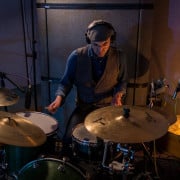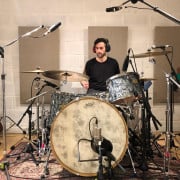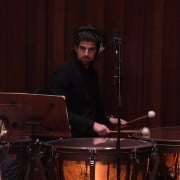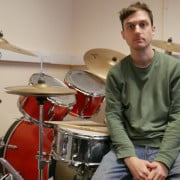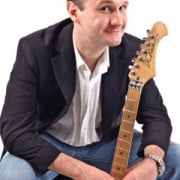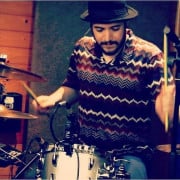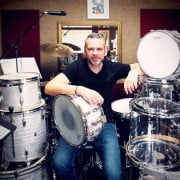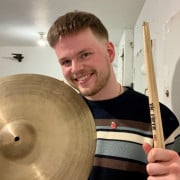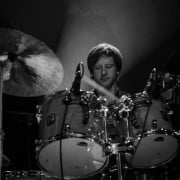Drums teachers in Durham
-
-
-
-
-
-
-
-
-
-
-
-
-
-
-
Ed
Leeds (LS8***), Online
Drums, Music Production, Guitar, Bass Guitar
-
Want more options?
Expand your search criteria or scroll down to see teachers who offer online tuition.
Online teachers in drums
Location doesn't matter when you choose to learn online and you can start right away.

Taking Drum Lessons in Durham
Do you want to take drum lessons in Durham? Looking for a drum tutor to help you sound like Steve Gadd, Nate Smith or Ringo Starr? Then why not start taking drum lessons in Durhamwith one of our experienced, professional drum tutors! Taking drum lessons in Durham with one of our carefully selected high-quality drum teachers will help you see your skills improve in your drum lessons quickly, whether you’re a beginner or advanced drummer, or anything in between. 50% off the first of your drum lessons in Durham today.
Professional, Trusted Drum Lessons in Durham
At MusicTutors, we are industry leaders in the areas of Safeguarding and Child Protection. We are the only online platform that requires all of our teachers to have an enhanced DBS Certificate, meaning that we are suppliers of excellent drum lessons that are safe and worry-free for all. Get in touch with one of our drum tutors today for 50% off the first of your drum lessons in Durham.
Why Take Drum Lessons in Durham?
Drums, one of the loudest but undeniably coolest instruments. Needed in every band, and the instrument that lays down the grooves and keeps the group together. What would a band be without its drummer? Not only is taking drum lessons fun, loud, and a great way to release energy and stress but to play the drums confidently and in time develops discipline, practise skills, and motivation. There’s also a great social aspect that comes with playing the drums - most drummers you meet are in more than one band, therefore playing with more people, and making more music! Start drum lessons in Durham today with one of our great drum tutors and get 50% off the first of your drum lessons in Durham!
Drum Lessons in Durham Not for You?
We offer high-quality drum lessons in every city, all over the country. Check out drum lessons in some of our biggest locations:
Other Lessons in Durham
MusicTutors don't just offer great drum lessons in Durham - we offer music lessons in a wide range of instruments.
Our team is expanding all the time and we are very proud of our professional tutors. Take a look at lessons in other instruments:
Our Customers Love MusicTutors
"Really friendly staff, super fast communication and truly reliable. Highly recommended!"
5 out of 5
Jack Poli - Music Tutor at Musictutors.co.uk
FAQ
- How Do I Get Started?
Simply choose your favourite teacher and send them a direct message by pressing the blue button on the right hand side of their profile! Then you and your tutor can chat to arrange the date, time and location for your first lesson. - How Do I Pay?
Once you have agreed on the details of your first lesson, your tutor will create a booking on the site. Payment can then be made via the platform. This is as simple as buying anything else online. You have the option of buying one lesson or buying a flexible block of lessons where you can receive up to 10% off. - Why Do Prices Vary?
At MusicTutors.co.uk we let our tutors set their prices depending on their own experience, demand and location. With our advice, tutors choose an appropriate price from 8 set prices. A lower price is not necessarily a sign of a lower quality teacher. - Lesson Types
Musictutors.co.uk only currently offers 1:1 lessons , but keep an eye on the website as we are planning to expand to group, and online lessons. - Can I Borrow an Instrument?
We do not offer an instrument rental service. However, our tutors can often advise you on this - so don’t hesitate to ask your tutor for help finding the right rental service. - Lessons for All Levels
Our tutors offer lessons at all levels - from beginners to advanced players. If you have specific requests such as GCSE/ A-Level tutoring, or preparation for a University audition, let us know and we can help you find the right tutor! - Lessons for Children
All of our tutors are high-quality professionals, holding either a music degree or years of relevant experience. In addition, we require that all of our tutors hold the Enhanced DBS certificate. So we can promise that your child’s lesson with one of our tutors will be high quality and safe.
If you have any questions about age and teaching approaches, you can contact the teacher directly or get in touch with our office team about finding the right tutor for your child. - Lessons for Mature Students
Are you looking to rekindle your old love of music after a long hiatus? Or looking to finally start something you’ve wanted to do your whole life? Our tutors are well equipped with stimulating lesson content for mature students as well as children, and will do all they can to make you feel comfortable and to personalise the experience for you!
The Drums
Taking drum lessons in Durham is an awesome idea - drums are the backbone of the band. The unit that keeps everyone together, and the one that gives the groove and feel of the song. However, they have the reputation of being loud, brash and the instrument that parents fear the most! But don’t be alarmed, as well as giving monstrous rock tones, they can be played softly with brushes or mallets. Plus, you can invest in an electric kit, which gives you the option of a quiet house with the noise only coming through headphones! Drum lessons in Durham are a great way for your child to improve their learning in other areas, too!
Choosing the Right Kit
Choosing your first drum kit is a difficult task. It can help to understand the different parts of the drum, so you can make sure you're getting everything you need! You can talk to your drum tutor in drum lessons in Durham about buying the right kit!
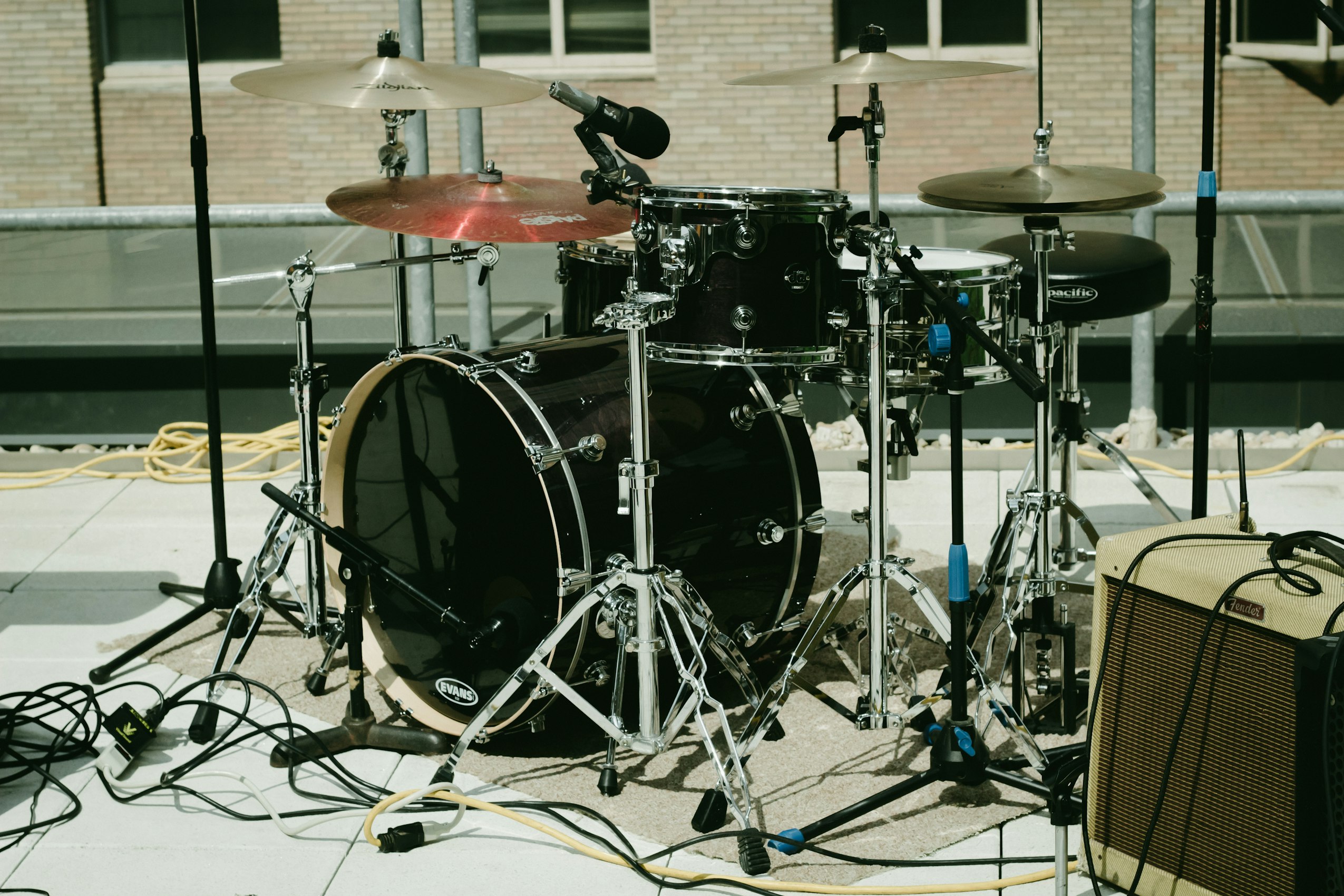
The Bass Drum
The bass drum is the biggest drum in the kit and is played with a foot pedal. It sits at the centre of the setup. Some bass drums have a hole the size of a roll of duct tape in the front drum head. This allows the air inside the drum to escape and avoids putting too much pressure on the front drum head. This also allows for dampening the sound of the drum - try it out by folding a towel and lying it inside the bass drum, against the front or back drum head. You can change this up depending on what room you're playing in, and what best fits your sound. Your drum tutor can show you how in your drum lessons in Durham.
The Snare Drum
The highest pitched drum in the kit is called the snare drum. It has strands of metal called snares attached to its underside, which is what gives it its unique sound and makes it great for 'rolls'. The metal snares vibrate against the drum when struck, giving it a multidimensional sound. It's worth spending some time getting to know this drum and how it sounds when you hit it in different ways. The snare is often used as a fundamental part in a basic beat, and you'll be using this a lot in your first drum lessons in Durham.
The Toms
Usually, a drum kit has three toms - rack tom 1 and 2, and a floor tom. When you hear big dramatic fills in a rock song, this is usually what's used! They have a deeper, fuller sound than the snare and are usually used for fills rather than keeping a basic beat.
Cymbals
There are usually three types of cymbals in a standard drum kit:
- The hi hat: consists of two cymbals on top of each other. The hi hat can be controlled with the foot pedal and can be struck with the drum sticks also. You can make a shorter, staccato sound by hitting a closed hi hat (with your foot all the way down on the pedal) and a stronger, fuller sound with the hi hat open (foot off the pedal). You can also play just with the pedal - try pressing your foot on the pedal and see what you can do with that sound. For beginners, the hi hat is usually left closed, as using the foot pedal can be difficult to do at the same time as playing. Once you've had a few more drum lessons in Durham and mastered some beats with the hi hat closed, you can start experimenting with different sounds!
- Ride cymbal: the ride cymbal a single cymbal. It often plays a similar part to the hi hat but with a more open sound.
- Crash cymbal: the crash cymbal is used for highlighting certain points in the music e.g. with a hard strike in the start of the chorus. It has the fullest, loudest sound of the three cymbals. It can also be used in a climactic section of music to replace the hi hat and play the same rhythm but with more sustained, full hits.
Drumsticks
When finding the right drumsticks, it's best try out a few different styles and makes to see what's comfortable for you. Most drumsticks are made from hickory wood but they can also be made from maple, oak, aluminium, carbon fiber and plastic. It all depends on the sound you want but the most important things is making sure that they are comfortable to play with. You drum teacher can cover this with you in your drum lessons in Durham.
All manufacturers have a 7A model which is quite light, thin and short. These are great for children. Models 5A and 5B are quite an average size. Here you get more stick and more weight, so they're great for adults playing rock where you'll need to hit the drums harder. Ask your drum tutor about getting the right sticks for your drum lessons in Durham.
Drum Stands
Drums sound best if they are placed on stands so that both drum heads can resonate freely. Placing the stands properly ensures there are no other elements effecting the vibration of the drums - for example, if one was against a wall, it could dampen the sound. It's also important to make sure that the toms which sit on the bass drum are suspended without making contact with any other part of the kit. This will ensure a clean sound. The tops of cymbal stands are padded to ensure that there is no contact between the metal from the stand and the cymbal, which could damage the cymbal. There is a plastic or rubber collar on the thread and two pieces of felt which go under and over the cymbal. There is also a winged screw attached on the top so the cymbal does not fall off if gets hit hard. If you are planning to play styles of music which require more powerful playing, investing in durable stands is a good idea to protect your precious drums and cymbals! Your drum tutor can show you how to properly set up your kit in one of your first drum lessons in Durham.
Bass Drum Pedal
The bass drum pedal or kick pedal is a very important part of the kit. Whilst they can be played without adjustment, it is possible to change the angle of the footplate, the speed of response via the spring and the length of the beater rod. The pedal should feel responsive, easy to play and the beater should strike on the centre line of the drum. To avoid damaging the wooden hoop of the bass drum, make sure a small piece of rubber is fitted where the pedal meets the drum. There are a few different techniques you can choose to play the bass drum - a great drum teacher will be able to talk you through these in your drum lessons. Heel up, heel down and foot and leg are just a few of the approaches you could implement to harness the full power of your leg muscles and make a deep, rich sound.
Making a Decision
Some stores will sell a beginner kit which includes the full kit (snare, toms, bass drum), hardware (all stands and pedals), as well as cymbals. Other stores will sell the kit and the cymbals separately. It’s worth going into different shops and seeing what they have available. A lot of drummers choose to buy kit separate to hardware so they can get exactly the sound they want from each part of the kit, especially with regards to cymbals. It's worth consulting your drum tutor in your drum lessons in Durham so you definitely make the right choice!
Learning Your First Rhythms
When first starting drum lessons in Durham, it's important to remember: it’s better to do a simple beat well than a complex one badly. There is a lot of coordination involved with playing the drums which is what makes the instrument so difficult. When you’re learning your first beats/grooves, try to really focus on hitting everything at the right time. Start slow and simple, then you can build up to more complex, faster beats.
Sitting at the Kit
Posture is important when playing any musical instrument, but particularly important when playing the drums as you are sitting down for long periods of time. Your drum tutor will cover this in your drum lessons, but here are a couple of tips to get you started:
- The chair should be set so your thighs are completely horizontal.
- The snare drum can be adjusted quite easily and should be around the same height as your belt.
- The hi hat should be higher than the snare drum - so much so that you could play with crossed hands - right hand on the hi hat and left hand on the snare drum.
- The toms should be adjusted so they stand at an angle where you are able to reach them without having to turn your arms.
- The cymbals should be at a distance where you can reach them easily. Angling them is also important - they can be easily damaged by overloading them. They should not by horizontal but instead be at a slight angle pointing towards the drummer's belly button.
This is a great starting point to work from - learn more with some drum lessons in Durham.
Practise Tips
Practising between your drum lessons in Durham is vital - but daunting. Just think of practising a musical instrument a bit like starting to go to the gym: when you first go, you can’t lift the heaviest weight - you have to work your way up gradually! It's the same idea with music. For the first couple of months, try practising for 15-20 mins a day. After 6 months, try increasing to 30 mins a day. After a year of playing, maybe try an hour a day. It's better to practise regularly for shorter amounts of time than playing for hours on one day, then not being able to do play for the rest of the week. You don't want to injure yourself, or tire yourself out! Little and often develops your technique and helps you build movement memory.

Questions About Drum Lessons in Durham?
At MusicTutors, we love helping connect students with their perfect tutor. If you have any questions about drum lessons in Durham, call us on 07946125613 or send us an email to [email protected]. We look forward to hearing from you!
Do You Want to Be a Music Tutor at MusicTutors.co.uk?
We are always looking for talented music tutors all over the UK. Think you're the right person for the job?
Apply here!



